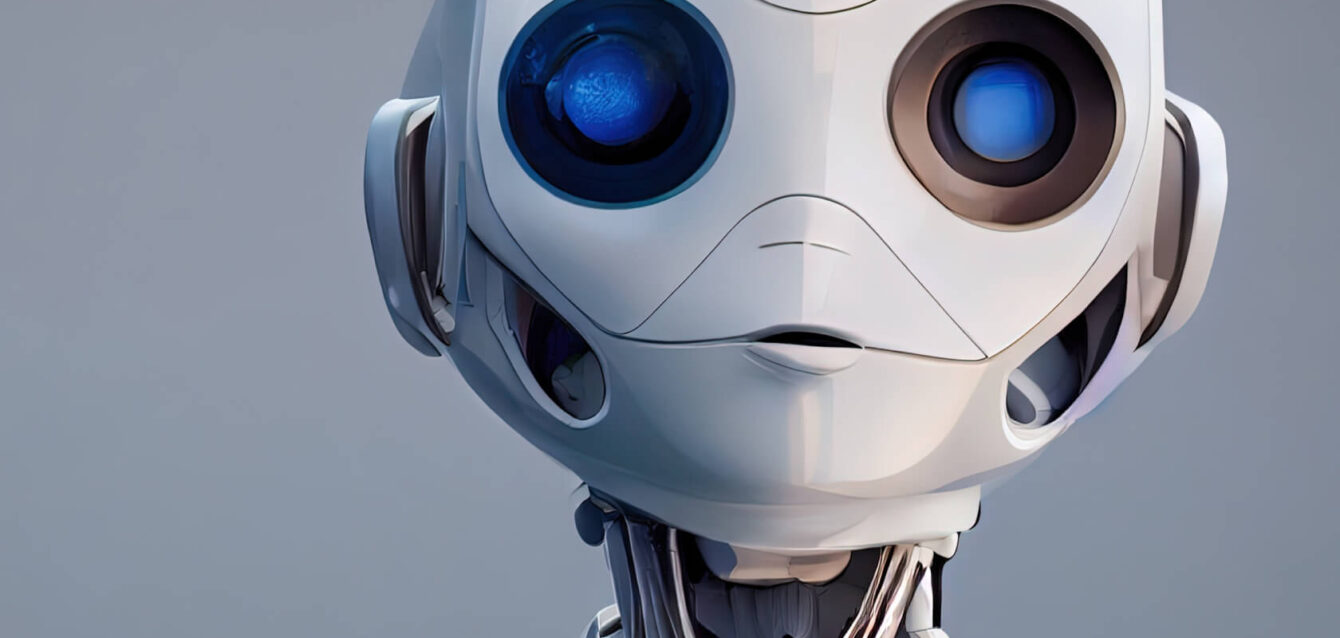The Future of AI Automation in Industries
AI automation is transforming industries. It’s a revolution driven by AI AUTOMOTION. This technology is reshaping workflows, enhancing efficiency, and redefining the future of work.

AI AUTOMOTION is not just about automating tasks. It’s about making intelligent decisions. It’s about leveraging data to optimize processes and outcomes.
From manufacturing to healthcare, finance to logistics, AI AUTOMOTION is making a significant impact. It’s enabling industries to operate smarter, faster, and more effectively.
But it’s not without challenges. Ethical considerations, workforce adaptation, and cybersecurity are just a few of the issues that need to be addressed.
In this article, we’ll explore the current and future impact of AI AUTOMOTION on industries. We’ll delve into the benefits, the challenges, and the potential developments in this exciting field. Join us as we journey into the future of AI automation in industries.
Understanding AI AUTOMOTION
AI AUTOMOTION is a groundbreaking approach in the automation landscape. It combines artificial intelligence with automation to create intelligent, adaptable systems. These systems learn from data, improving their capabilities over time.
Unlike traditional automation, AI AUTOMOTION doesn’t just follow preset instructions. It can analyze complex datasets, make decisions, and adjust its actions accordingly. This versatility makes it invaluable across industries.
AI AUTOMOTION vs. Traditional Automation
Traditional automation relies on fixed algorithms and rules. It performs repetitive tasks without any variation. AI AUTOMOTION, however, offers dynamic adaptability.
By using advanced AI techniques like machine learning, AI AUTOMOTION can make decisions based on real-time data. This results in more efficient and flexible operations compared to static automation processes.
The Role of AI in Robotics Process Automation
In robotics process automation (RPA), AI plays a pivotal role. AI enhances RPA by adding cognitive capabilities that allow for more sophisticated task execution.
These capabilities enable RPA tools to handle unstructured data, improve accuracy, and reduce human intervention. Thus, AI AUTOMOTION extends the scope and functionality of RPA, making it a powerful tool in industry.
AI AUTOMOTION Across Industries
AI AUTOMOTION is reshaping industries by streamlining processes and enhancing capabilities. From manufacturing to healthcare, industries are witnessing transformative changes.
The adaptability and intelligence of AI AUTOMOTION make it an ideal solution for complex challenges. Its ability to learn and adjust optimizes operational efficiency, helping industries remain competitive.
Manufacturing Revolution with AI AUTOMOTION
In manufacturing, AI AUTOMOTION introduces revolutionary changes. It enhances production lines through predictive maintenance and quality control.
Automated systems can identify defects and predict equipment failures, reducing downtime. This leads to greater efficiency and less waste, boosting productivity.

AI AUTOMOTION in Healthcare: A New Era of Service
Healthcare is experiencing a new era with AI AUTOMOTION. It supports diagnostics and personalized medicine, transforming patient care.
AI-driven tools analyze medical data swiftly, aiding faster and more accurate diagnoses. This evolution reduces human error and enhances healthcare delivery.

Financial Services: Fraud Detection and Risk Management through AI
In financial services, AI AUTOMOTION plays a crucial role in fraud detection and risk management. It scrutinizes transactions for unusual patterns in real-time.
This proactive approach significantly reduces fraudulent activities. Moreover, AI enhances compliance by swiftly responding to regulatory changes.

Key Benefits of AI AUTOMOTION
AI AUTOMOTION offers numerous advantages across various sectors. It drives productivity and streamlines operations with remarkable precision.
Organizations benefit from cost reductions and enhanced efficiency. Additionally, it enables businesses to achieve significant competitive advantages.
Efficiency and Cost Savings
AI AUTOMOTION significantly boosts operational efficiency by automating repetitive tasks. This leads to faster task completion and reduced human error.
With fewer manual interventions, businesses save on labor costs. These savings are reinvested, fostering innovation and growth.
Enhancing Decision-Making with Data Analysis
Advanced data analysis is another key benefit of AI AUTOMOTION. It provides insights from vast datasets, improving decision-making processes.
By leveraging AI-driven insights, companies make informed choices swiftly. This enhances business strategies and aligns them with market demands.
Creating New Job Opportunities
While automating tasks, AI AUTOMOTION also creates new job opportunities. It necessitates roles focused on overseeing and optimizing AI systems.
As industries adopt AI, demand for skilled professionals in AI management grows. This shift highlights a need for upskilling and adaptation.
Challenges and Ethical Considerations
AI AUTOMOTION presents various challenges and ethical issues. Addressing these is crucial for safe and effective implementation.
Privacy concerns arise as AI systems analyze vast personal data. Ensuring data protection is imperative for building trust.
Moreover, ethical guidelines must govern AI’s deployment to avoid bias. Responsible AI use protects against unintended social impacts.
Navigating the Ethical Landscape of AI AUTOMOTION
The ethical landscape of AI AUTOMOTION is complex. Striking a balance between innovation and responsibility is essential.
AI systems must be transparent to ensure fairness and equity. Developers must prioritize ethical considerations in AI design processes.
Regulations and ethical standards are key in fostering trust. Industry leaders must collaborate on robust ethical frameworks.
The Importance of Human Oversight
Human oversight in AI AUTOMOTION remains critical. It ensures that AI systems align with human values and societal norms.
AI can assist, but decisions demand human judgment and accountability. This oversight safeguards against unintended consequences.
Combining human intuition with AI’s speed drives optimal outcomes. Such collaboration enhances both AI effectiveness and reliability.
The Future of AI AUTOMOTION
The landscape of AI AUTOMOTION is set for remarkable advancements. Future systems promise to be more intelligent and adaptive. They will integrate smoothly with complex environments and user needs.
AI technology will continue reshaping industries. New AI capabilities will emerge, driven by ongoing research and innovation. This will unlock opportunities previously unimaginable and redefine efficiency.
Predictive Analytics and Adaptive Systems
Predictive analytics is central to AI AUTOMOTION’s future. It enables forecasting of trends, demands, and potential issues. These insights drive proactive decision-making.
Adaptive systems, learning in real-time, offer tailored responses. They become smarter with every interaction. This adaptability enhances system efficiency across varied applications.
The Role of AI AUTOMOTION in Sustainable Development
AI AUTOMOTION supports goals in sustainable development. Intelligent systems optimize resource use, reducing waste and energy consumption. This contributes to greener operations worldwide.
These technologies enable precise environmental monitoring. They assist in managing ecosystems and natural resources. AI-driven insights foster sustainable growth and conservation efforts.
Preparing the Workforce for an AI-Driven Future
The evolving AI landscape necessitates a prepared workforce. Education and training must adapt to new technological demands. Upskilling becomes vital for job security and career advancement.
Organizations must invest in employee training to bridge skills gaps. Encouraging lifelong learning ensures adaptability. This enables workers to thrive alongside AI technologies.
Conclusion
AI AUTOMOTION holds immense potential for transforming industries. As technology evolves, businesses must adapt to these changes. Embracing AI-driven processes will unlock new efficiencies and opportunities, paving the way for a future where industries are smarter, more sustainable, and more competitive on a global scale.







